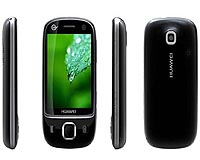 |
San Francisco (AFP) May 4, 2011 Intel on Wednesday proclaimed a significant chip breakthrough that should result in packing more power into mobile devices while safeguarding precious battery life. The US chip giant said that for the first time since the silicon transistor was invented more than 50 years ago it has found a way to mass produce them in three dimensions instead of only two. Intel's "revolutionary" Tri-Gate transistor is built upward instead of only out to the sides on par with the way a skyscraper has more capacity than a cluster of houses. "Intel's scientists and engineers have once again reinvented the transistor, this time utilizing the third dimension," said Intel chief executive Paul Otellini. "Amazing, world-shaping devices will be created from this capability as we advance Moore's Law into new realms." Moore's Law is a principle that the number of transistors that can be placed economically on a chip doubles every two years. The trend has held true for a half-century and has been at the heart of a mobile lifestyle in which smartphones, tablet computers and other gadgets grow in power while shrinking in size. The Tri-Gate chip, first disclosed by Intel in 2002, is manufactured at the 22-nanometer node. A nanometer is one-billionth of a meter. "The performance gains and power savings of Intel's unique 3-D Tri-Gate transistors are like nothing we've seen before," said Intel senior fellow Mark Bohr. "The low-voltage and low-power benefits far exceed what we typically see from one process generation to the next," he continued. "It will give product designers the flexibility to make current devices smarter and wholly new ones possible."
Share This Article With Planet Earth
Related Links Computer Chip Architecture, Technology and Manufacture Nano Technology News From SpaceMart.com
 China's Huawei sues ZTE for patent infringement
China's Huawei sues ZTE for patent infringementBeijing (AFP) April 28, 2011 China telecoms giant Huawei said Thursday it is suing hometown rival ZTE in Europe for alleged patent and trademark infringements, as the Chinese firms battle for overseas market share. The lawsuits filed in Germany, France and Hungary accuse ZTE, a telecom equipment supplier, of breaching a series of Huawei's patents and illegally using a Huawei-registered trademark on some products. "H ... read more |
|
| The content herein, unless otherwise known to be public domain, are Copyright 1995-2010 - SpaceDaily. AFP and UPI Wire Stories are copyright Agence France-Presse and United Press International. ESA Portal Reports are copyright European Space Agency. All NASA sourced material is public domain. Additional copyrights may apply in whole or part to other bona fide parties. Advertising does not imply endorsement,agreement or approval of any opinions, statements or information provided by SpaceDaily on any Web page published or hosted by SpaceDaily. Privacy Statement |